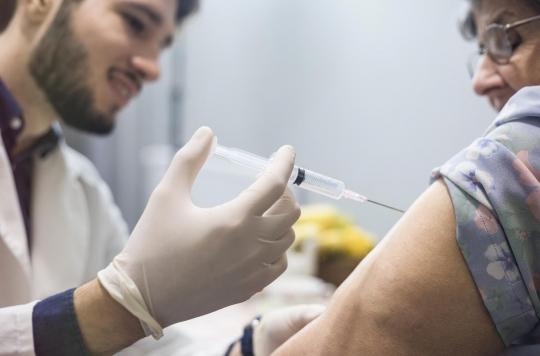The deputies adopted an amendment which provides for “informing” and no longer “consulting” the families of organ donors, in order to alleviate the shortage of donations.

- MEPs adopted a text strengthening the notion of “presumed consent” for organ donation.
- Each year, between 500 and 700 people die in France from lack of transplants.
MEPs have slightly changed the rules governing organ harvesting. During the examination of the bill of health, they indeed voted a government amendment, which takes again a definition proposed in committee by the Socialist deputies Jean-Louis Touraine and Michèle Delaunay.
Reinforce “presumed consent”
The text reinforces the notion of “presumed consent” – a principle according to which everyone is a potential donor, unless they have made their opposition explicit by registering in the national refusal register. The register has some 100,000 registrants and was established with the Caillavet law of 1976.
To alleviate the phenomenon of shortage, the text provides that the family of the deceased donor is no longer “consulted”, but only “informed” of the nature of the planned removal and of its purpose. One way to increase the number of donors while avoiding a difficult decision for the family.
Indeed, while 80% of French people say they are in favor of organ donation, the refusal rate is around 40%. Failure to leave a directive often complicates the decision-making process. According to the deputy Michèle Delaunay, families can sometimes refuse a donation because they are in full emotional shock, “even if it means regretting it afterwards”. An argument taken up by Jean-Louis Touraine, himself a transplanter.
Express your refusal
The text also provides for increasing the means of expressing its refusal. Thus, the national register of refusals would be the “main” and no longer “exclusive” tool for doing this. The modalities by which this refusal could be expressed and revoked are referred to a decree of the Council of State published by January 1, 2017.
The amendment was welcomed by the Life Transplant Foundation, which deplores the death of 500 to 700 people each year from lack of grafts. figures from the Biomedicine Agency indicate that in 2014, 20,311 patients were on a waiting list to receive an organ.
Oppositions
The text has aroused opposition among health professionals responsible for carrying out the samples, who consider it inconceivable to do without the opinion of the family. The deputies, however, tried to reassure the public by explaining that the donation will not be made in the event of a formal refusal of relatives.
“No one will remove an organ if the family does not consent to it,” said Socialist Gérard Sebaoun. “Your article is very brutal for families. You have to do the opposite. To say during his lifetime that we are in agreement, for his part judged the UMP Bernard Debré. The UDI Arnaud Richard tried in vain to pass an amendment so that the agreement or the refusal of organ harvesting is registered on the Vitale card.
.

















